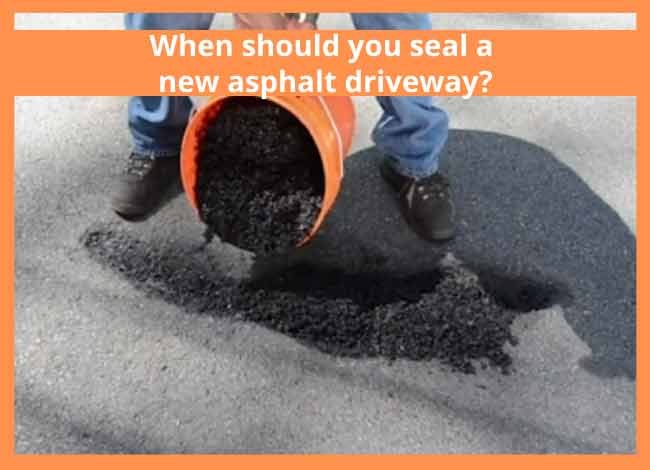Last Updated on April 21, 2025
Asphalt driveways are known for their durability and cost-effectiveness. They offer several benefits, such as a smoother ride, reduced noise pollution, and improved visibility in various weather conditions. However, one common question homeowners ask is: When is the best time to seal a new asphalt driveway?
Unfortunately, many people seal their asphalt driveways too soon, which can shorten the lifespan of the surface. Sealing asphalt immediately after installation can trap essential oils inside the material, preventing it from curing properly and ultimately reducing its durability.
The Ideal Time to Seal a New Asphalt Driveway
The recommended time to seal a new asphalt driveway is approximately six months after installation. This allows the asphalt to fully cure and release excess oils that contribute to its initial flexibility. While some homeowners may seal their driveways after three months, this is generally not advisable, as the asphalt may not be ready and could deteriorate prematurely.
Why Wait Six Months Before Sealing?
When properly installed, sealed, and maintained, an asphalt driveway can last up to 30 years or more. But that durability begins with allowing the driveway to cure before sealing.
Here are key tips to follow:
- Allow curing time: Wait at least six months after installation.
- Apply two coats of sealer: Ensure an 8-hour interval between coats.
- Choose the right season: Apply the sealer during warm weather, preferably in summer or early fall for best results.
Sealing during cold months may not yield the same adhesion or long-term protection. For optimal bonding and drying, it’s best to seal the driveway on a warm summer day, ideally in the late afternoon when the surface temperature is ideal but not too hot.
Why Is Sealing an Asphalt Driveway Important?
Sealing your driveway plays a vital role in protecting it from environmental stressors such as:
- UV rays
- Rain and snow
- Ice and freeze-thaw cycles
Without a sealant, these elements can weaken the asphalt, making it brittle and prone to cracking. Over time, water may seep into small cracks, freeze, and expand—causing further damage. While new asphalt is naturally elastic, this flexibility fades over time. Sealing helps preserve that elasticity and protects against early wear.
Related article: How Frequently Should You Seal Your Driveway?
Sealing too soon, however, can trap hydrocarbon oils that make the asphalt pliable. This can lead to soft spots and leave the surface vulnerable to indentations from kickstands, tires, or heavy objects. It’s important to give the asphalt enough time to cure before sealing to avoid these issues.
Preparing Your Driveway for Sealing
Once your asphalt driveway has aged at least six months, you’re ready to apply a sealer. For best performance, consider using a coal tar-based driveway sealer, known for its long-lasting protection.
Before sealing:
- Inspect and repair any holes or cracks
- Remove weeds, grass, and mold
- Clean the surface thoroughly
When applying the sealer:
- Use a wide squeegee for even distribution
- Avoid applying a thick or overly thin layer
- Follow product instructions precisely
- Apply a second coat after the first has dried
Conclusion
After installing a new asphalt driveway, it’s crucial to apply a driveway sealer to protect the surface and extend its lifespan. However, sealing should not be done immediately after installation. Experts recommend waiting at least six months to allow the asphalt to fully cure before applying any sealant.
When the weather is warm and dry, and the driveway has cured properly, apply two coats of high-quality driveway sealer for the best protection. Sealing the surface too early can trap oils and moisture, leading to premature deterioration.
By sealing your asphalt driveway at the right time and under ideal weather conditions, you can expect it to last up to 20 years or more. With proper maintenance—such as regular cleaning, timely crack repair, and resealing every few years—it can even last over 30 years.
Remember, patience and proper timing are key to getting the most out of your driveway investment.

